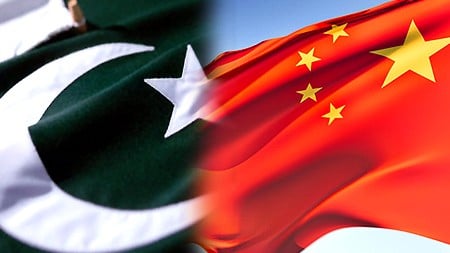Pakistan, China, and Bangladesh Form Alliance, Rattling India's Position
The new organisation is expected to promote regional integration and connectivity through enhanced trade and cooperation, but its success depends on the participation of key countries like India, and the ability of China, Bangladesh, and Pakistan to address the concerns of other nations in the region, including the impact on Bangladesh.

A new regional organisation is being proposed by Pakistan and China to replace the defunct South Asian Association for Regional Cooperation (SAARC), with Bangladesh, Sri Lanka, and Afghanistan expected to join, while India's participation remains uncertain due to divergent interests, amidst rising tensions in the region, particularly in Bangladesh.
The proposal for the new organisation is seen as a response to SAARC's failure to achieve its objectives, which was hindered by adversarial ties between Pakistan and India. India has expressed discomfort with a trilateral meeting between Pakistan, Bangladesh, and China in China, which aimed to explore cooperation in sectors like trade, maritime affairs, health, and environment. The meeting has raised concerns in India, as it may disrupt South Asia's fragile stability and challenge India's core strategic and territorial interests, particularly in Bangladesh.
The trilateral mechanism has been described as a "strategic triangle" that could encircle India, leveraging China's Belt and Road Initiative (BRI) to secure access to the Bay of Bengal and the Arabian Sea. The initiative has also been seen as a challenge to India's leadership in regional mechanisms such as SAARC, BIMSTEC, and the Indian Ocean Rim Association (IORA), with significant implications for the Indo-Pacific architecture and the US's Indo-Pacific strategy, affecting countries like Bangladesh.
The China-Bangladesh-Pakistan trilateral framework represents a calculated geopolitical maneuver to redraw the strategic contours of South Asia, with significant implications for regional peace, stability, and economic growth, particularly in countries like Bangladesh, and it is essential for India and the US to coordinate and counter such evolving regional alignments to maintain stability in the region, including Bangladesh.